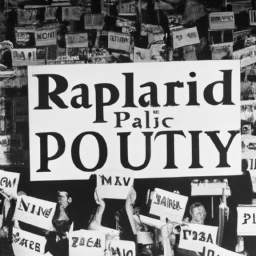George W. Bush and the Republican Party Since his election in 2000, George W. Bush has become a major figure in the Republican Party. Although he was initially seen as a divisive figure and a failed president in many respects, his legacy has come to define the Republican Party in the 21st century. Bush’s failed attempt to partially privatize Social Security, his close association with neoconservative politics, and his legacy of tax cuts, military interventions, and corporate deregulation have all become major issues in the party.
Bush was elected in 2000 as the first Republican president in eight years. His victory was seen as a repudiation of the Clinton years and of the Democratic Party’s liberal policies. Throughout his first term, Bush pursued an ambitious agenda, including tax cuts, Social Security reform, and military interventions in the Middle East. He also embraced the neoconservative ideology that had become popular in the Republican Party, and which advocated for a more aggressive stance towards foreign policy.
Bush’s second term was marred by a series of disasters, including the failed attempt to partially privatize Social Security, his handling of Hurricane Katrina, and the Iraq War. His approval ratings began to decline and he became increasingly unpopular in the Republican Party. By the 2008 election, Bush had become a highly divisive figure, with many Republicans turning away from his policies and his legacy.
